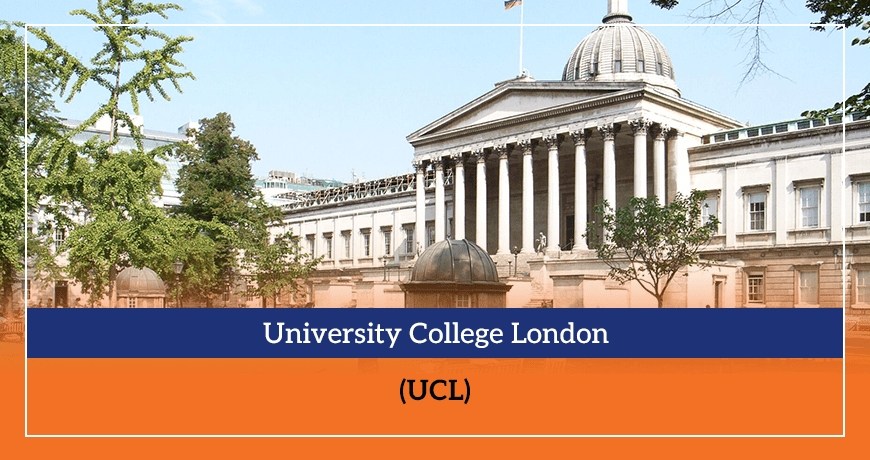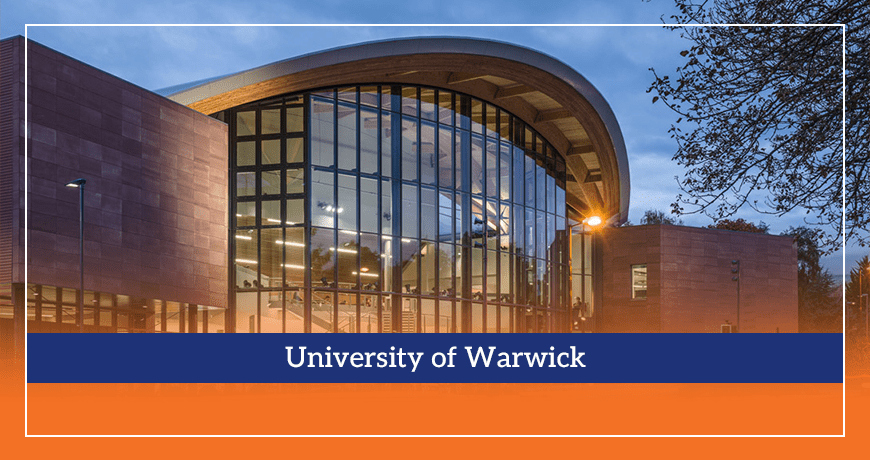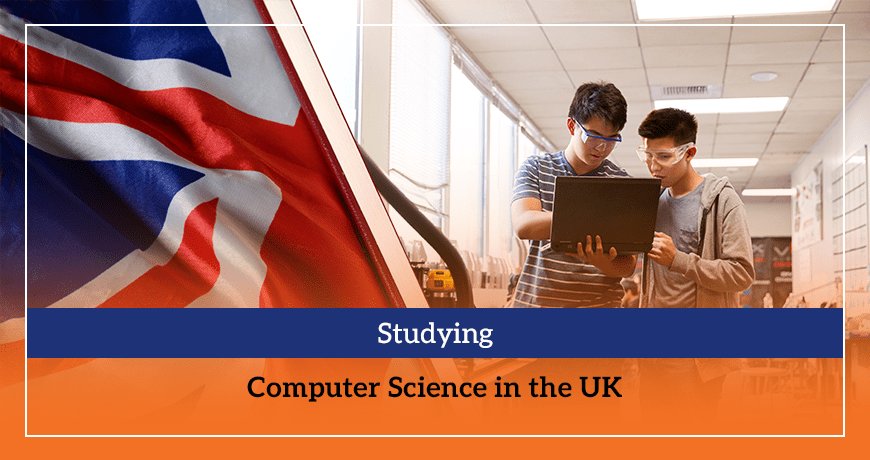
Imagine launching your tech career with a degree recognised worldwide, backed by cutting-edge research and direct industry pathways. What makes UK computer science education a powerful catalyst for global success?
UK universities rank #3 globally for technology education (QS 2025), blending centuries of academic excellence with future-focused innovation. For international students, the Graduate Route visa unlocks 2-3 years of post-study work eligibility, no employer sponsorship required. This access pairs with thriving tech hubs, such as London’s "Silicon Roundabout" and Edinburgh’s AI ecosystem, where companies like DeepMind and Amazon actively recruit graduates.
Recent 2025 data reveals explosive growth:
This article explores the best UK universities for computer science, analysing teaching excellence, industry partnerships, and graduate outcomes. You’ll discover how programs at Oxford, Imperial, and emerging leaders like Surrey align with AI, cybersecurity, and quantum computing careers, turning degrees into long-term career accelerators.
League tables use different methods. This affects their results. We combine four key pillars to give you a clearer picture. These pillars address gaps in single rankings. They focus on what truly matters for your future.
|
Ranking Source |
Teaching Weight |
Employability Weight |
Top 2025 Performer |
|
THE |
29.5% |
15% |
University of Oxford |
|
Guardian |
30% |
25% |
Imperial College |
|
QS |
20% |
20% |
University of Cambridge |
Rankings like THE prioritise research quantity (30% weight). But this doesn’t guarantee industry relevance. For example:
Remember: Choose programs aligned with your career goals, not just prestige. A lower-ranked university with strong industry links (e.g., Surrey’s 5G labs) often outperforms in job placement.

Key Highlights:
Overview:
Oxford dominates global rankings for its AI and quantum computing research. Students work directly with DeepMind researchers on autonomous systems projects. The MSc program includes quantum security protocols and ethical AI governance, which are critical for next-generation tech leadership. Over 43 industry projects were run in 2024-25, including optimising quantum circuits for ORCA Computing. The new Stephen A. Schwarzman Centre features labs for the development of quantum algorithms. Rigorous admissions require A*AA in Mathematics and top scores on the MAT test. Graduates design quantum software at firms like Quantinuum. This program blends theory with real-world impact.
Key Highlights:
Overview:
Cambridge pioneers machine learning innovation through its Advanced Computer Science program. Students develop neuro-symbolic AI systems at the Maxwell Centre, partnering with Arm Holdings on chip optimisation projects. The curriculum covers distributed ledger technology for fintech accelerators, such as Revolut. Cambridge Spark bootcamps teach commercial AI deployment. Alumni lead machine learning teams at AstraZeneca and Apple. Admission demands AAA with STEP mathematics testing. The course emphasises algorithmic fairness and hardware-aware AI. Students publish at NeurIPS and ICML conferences. Cambridge turns theory into market-ready solutions.
Key Highlights:
Overview:
Imperial’s IET-accredited programs integrate industry needs into every module. Students complete 6-month placements at Google DeepMind or GCHQ, building IoT diagnostic tools for NHS hospitals. The AI track includes security briefings on protecting critical infrastructure. Recent projects: cancer detection algorithms with Imperial College Healthcare NHS Trust. The South Kensington campus neighbours Siemens Healthineers and Meta AI labs. Courses use TensorFlow and PyTorch for real healthcare datasets. Employers like BAE Systems directly mentor capstone projects. Imperial turns coders into solution architects.
Key Highlights:
Overview:
Edinburgh drives AI ethics innovation at Europe’s largest informatics hub. Students develop climate modelling AI with Rockstar North, creating flood prediction tools for the Scottish Environment Protection Agency. At the Bayes Centre, you’ll draft generative AI policies for government use and build emotion-recognition systems for BBC archives. Amazon’s climate tech accelerator sponsors projects on carbon footprint tracking. The program includes quantum security labs tackling post-quantum cryptography threats. Natural language processing courses use real NHS data to improve diagnostic chatbots. With 30% international enrollment and Turing Institute fellowships, graduates lead ethical AI teams at FanDuel or Quantinuum. Admission requires coursework in algorithms and a 2:1 degree, except for collaborative projects involving 120+ industry partners.

Key Highlights:
Overview:
UCL’s conversion MSc opens tech careers for non-CS graduates through hands-on learning. Financial cryptography courses use Bloomberg Lab datasets to build fraud-detection blockchain systems for Revolut. Health informatics projects with Great Ormond Street Hospital involve creating predictive diagnostic tools for pediatric cancers using TensorFlow. At the IDEALondon incubator, students prototype RegTech solutions for Bank of England standards. The curriculum covers Python for fintech APIs and PyTorch for medical imaging analysis. Industry mentors from Microsoft and Babylon Health guide students through their capstone projects. With a central London location, benefits include a high percentage of international graduates joining firms such as Goldman Sachs or Owkin Health AI. Entry requires proof of quantitative skills; no prior coding experience is needed.
Key Highlights:
Overview:
Manchester delivers high-value data engineering with the UK’s most affordable Russell Group program (£27.5K/year). Students design bioinformatics pipelines analysing Cancer Research UK genomic datasets using Apache Spark. At the ID Manchester campus, cloud computing modules optimise Tesco’s supply chain with IBM Watson. Automotive data systems projects for Jaguar Land Rover process real-time sensor data from test vehicles. The 24:1 student-faculty ratio ensures mentorship from academics like Steve Furber, a Turing Award winner. Industry workshops with AutoTrader teach AWS deployment for e-commerce platforms. Graduates build data lakes for AstraZeneca or streaming architectures for BBC iPlayer. Entry requires software development experience. Python bootcamps prepare beginners.
Key Highlights:
Overview:
Southampton trains cyber defenders in GCHQ-certified labs using real threat intelligence. Students analyse maritime threat data for BAE Systems, detecting anomalies in shipping networks. The UK’s only 6G testbed enables you to stress-test telecom security for Ericsson, a key skill sought by Vodafone recruiters. Tim Berners-Lee’s legacy inspires web science courses on decentralised data ownership. Practical modules include penetration testing of the Airbus drone fleet and Darktrace AI response simulations. With Cisco Cyber Range exercises, you’ll earn CCNA certification during the degree. 94% of international graduates secure roles at NCSC or BT Security. Entry demands networking coursework and programming certificates.

Key Highlights:
Overview:
Warwick bridges data science and engineering at its Jaguar Land Rover-funded hub. Students develop drug discovery algorithms for AstraZeneca, reducing clinical trial timelines by utilising machine learning. Automotive projects create real-time traffic optimisation models for UK motorways deployed in Jaguar’s 2026 EV lineup. The "Tech for Society" initiative embeds ethics in innovative grid forecasting tools for National Grid. Courses teach SQL for energy consumption analysis and R for pharmaceutical datasets. Industry placements at Siemens or IBM convert to graduate offers for 70% of students. With over 100 employers attending annual fairs, alumni earn average salaries of £ 52,000 at companies like Revolut or Bloomberg. Statistics coursework is essential for admission.
Key Highlights:
Overview:
St Andrews explores ethical human-AI interaction through its £21K MSc. Students design conversational AI with Amazon’s Speech Lab, creating voice assistants for people with speech disorders. VR labs prototype biometric ethics tools for NHS Scotland, like eye-tracking interfaces for dementia patients. Courses cover accessibility standards for Meta’s VR hardware and emotion-sensing wearables for stroke rehabilitation. With Apple-funded projects, you’ll test Siri integrations for dyslexic users. The 12:1 tutorial ratio ensures personalised feedback from HCI pioneers like Aaron Quigley. 40% female enrollment drives inclusive design research. Graduates join Skyscanner’s UX team or Apple’s special projects group. Psychology or design backgrounds are welcome.
Key Highlights:
Overview:
Royal Holloway leads in cyber defence with NATO-backed training. Students conduct blockchain forensics for Lloyds Banking Group, tracing cryptocurrency fraud across ledgers. Zero-trust architecture projects counter quantum threats to NHS patient databases. GCHQ-certified modules include cyber-warfare simulations, such as defending power grids against ransomware attacks. The Cyber Security Research Centre partners with the National Crime Agency on dark web monitoring tools. NCSC scholarships fund fieldwork, such as penetration testing, at Heathrow’s control systems. Graduates earn an average of £62K at BAE Systems or ThreatSwitch. Entry requires coursework in cryptography, including 60-hour CTF competitions that test real-world response skills.

Looking beyond traditional rankings? Discover universities leading in high-value computer science UK programs and niche tech specialisations.
Find your perfect match with these specialised leaders:
|
Field |
Top University |
Industry Links |
|
Artificial Intelligence |
University of Edinburgh |
Amazon Science Hub, Rockstar North |
|
Cybersecurity |
Royal Holloway |
GCHQ, BAE Systems |
|
Quantum Computing |
University of Oxford |
ORCA Computing, UK Quantum Hub |
|
Fintech |
UCL |
Bloomberg, Revolut |
Example: Edinburgh AI students build chatbots for Amazon's Edinburgh hub. Royal Holloway cybersecurity majors train in GCHQ-approved threat labs.
These universities deliver strong returns through focused expertise:
Did you know? Cardiff's AI students reduced energy waste by 17% in Welsh hospitals through predictive algorithms.
Ask yourself:
Remember: Specialised skills often command higher salaries. Fintech graduates average £58K starting pay – 22% above general CS roles.
Tip: Match your passion to program strengths. Love gaming? Edinburgh's Rockstar North projects beat generic degrees.
UK computer science graduates enjoy competitive salaries that reflect their specialisation and location. Here’s a snapshot of 2025 earnings:
Salaries in London exceed the national average by 28% 7. For example:
Table: Salary Growth by Experience Level
|
Role |
0-3 Years |
5+ Years |
|
Data Scientist |
£45,000 |
£85,000 |
|
DevOps Engineer |
£50,000 |
£105,000 |
|
Cybersecurity Analyst |
£35,000 |
£90,000 |
Source: Morgan McKinley 2025 data
International students benefit from the Graduate Route Visa, which allows for 2-3 years of post-study work. Key 2025 insights:
Companies like Revolut sponsor 73% of international tech hires within 6 months of graduation.
Dr. Anya Patel, University of Cambridge
My Cambridge research in neural networks directly enabled real-time analysis of medical imaging. The UK’s healthcare tech sector needs computer scientists who bridge the gap between theory and practice.
3 Strategic Moves for 2025 Graduates:
The UK’s £1.1 trillion tech sector needs leaders who blend technical depth with ethical foresight. Start by aligning your MSc projects with emerging fields like generative AI or green tech."

Imperial College London reports that 80% of international graduates secure tech roles within 15 months, with Tier 2 visa sponsorship from partners such as DeepMind and Meta.
Oxford leads in applied AI/robotics (DeepMind partnerships), while Cambridge excels in machine learning theory and startup incubation (Arm Holdings, Silicon Fen). Both average £78K+ starting salaries.
St Andrews (£ 21,000/year) and Cardiff (£ 24,500/year) offer the lowest fees. Dundee (non-Russell) offers BCS-accredited degrees at £ 21,900 with 85% satisfaction.
92% of the top 20 programs require A-Level Math. Exceptions: UCL's conversion MSc accepts non-CS backgrounds, provided there is proof of quantitative skills (e.g., statistics coursework).
Royal Holloway (#1 in UK), Southampton, and Lancaster provide GCHQ-certified programs with NCSC scholarships and classified project access.
EU students now pay international fees, but the Graduate Route visa still allows for 2-3 years of post-study work. 89% of CS graduates secure visa sponsorships at tech firms.
Imperial (6-month placement), Bath (Dyson collaborations), and Newcastle (NHS AI projects) are integrated placements. 88% of placement students receive job offers.
Oxford (14%), Cambridge (18%), UCL (23%), Edinburgh (30%), and St Andrews (45%). Portfolio quality (GitHub, research papers) heavily influences decisions.
Edinburgh (Bayes Centre), Oxford (Robotics Institute), and Cambridge (Centre for AI Governance) lead in UKRI funding and industry partnerships.
Yes, Russell Group degrees are globally accredited. Imperial and Cambridge grads are prioritised by FAANG firms, with 32% of alumni working in Silicon Valley.
Choose your computer science degree with three priorities:
Quantum computing and AI disruptions accelerate. Graduates from the best UK universities for computer science lead these changes. Consider Oxford for quantum computing, Imperial College London for AI, or Royal Holloway for cybersecurity.
Your choice today shapes your role in tomorrow’s tech landscape. Start building.

June 28 2025

June 23 2025
Author: Dr Mohammad Shafiq
You're about to discover something 95% of Bangladeshi students never learn. Getting a full scholarship to an American university is about knowing... Read More
Author: Dr Mohammad Shafiq
Did you know that over 4,000 UK student visas faced refusal last year due to unmet English language requirements? Strong English skills decide more th... Read More
Author: Dr Mohammad Shafiq
Many Nigerian students aspire to study in the UK. It’s a great place to learn. UK universities are renowned for their high-quality education. Th... Read More